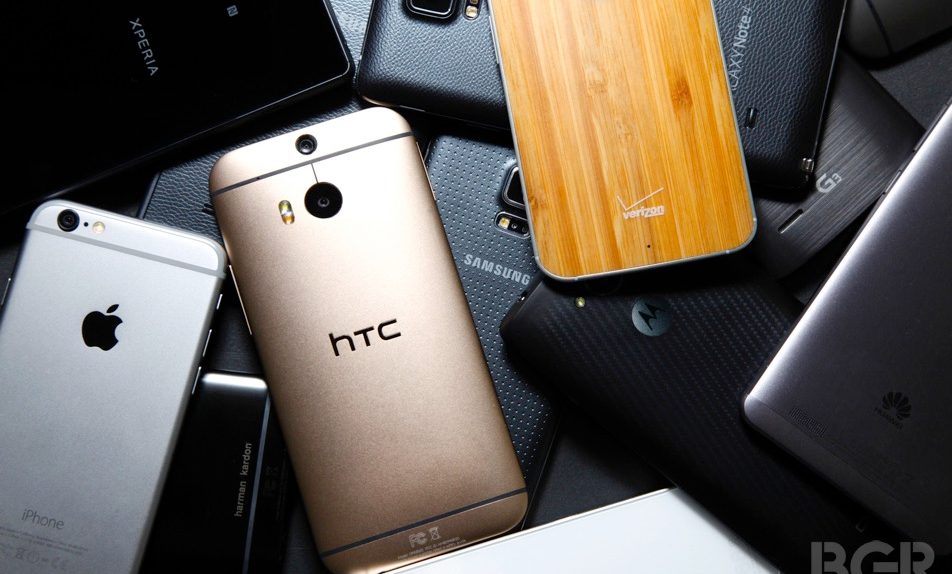It’s always fun reading contrarian hot takes that tell us why certain major companies such as Microsoft, Apple and Google are doomed to fail. The hottest take we’ve read this week comes to us from venture capitalist Ed Fernandez, who writes over at CNBC that the smartphone industry is essentially “over” and that Apple is in danger of going down in flames like BlackBerry did circa 2011.
FROM EARLIER: Steve Jobs and Steve Wozniak reflect on early Apple days in rare video
Fernandez starts out by making some solid points about how the potential for smartphone growth seems limited at the moment while also rightly pointing out that fierce competition has made it almost impossible for any company other than Apple and Samsung to consistently turn a profit from selling them.
However, this doesn’t mean that the smartphone industry is “over,” just as the PC industry isn’t “over.” After all, even if PC sales are declining and vendors aren’t finding them profitable anymore, that doesn’t mean nobody is buying PCs. In fact, PCs are still an essential computing product for many people, as you just can’t do everything you need on a smartphone.
However, Fernandez’s take is only mildly warm at this point. Look out, though, because it’s about to start sizzling as he compares Apple to BlackBerry.
In its very early days, BlackBerry didn’t even have intentions to get into the hardware business. The company originally engineered the messaging service, but there were no keyboard devices to support it. BlackBerry’s messaging proposition evolved into the incredibly popular mobile push email, which Wall Street embraced, ultimately buying anti-fashion qwerty devices as a necessary ‘accident’ to have real-time email. It turned into a phenomenal hardware business for BlackBerry, fostered by carrier-driven sales of push email services embedded in their data plans. Apple and many others follow the same pattern.
Except that Apple hasn’t at all followed the same pattern of carrier-driven hardware sales. Instead, it’s created phones that its users love so much that they sleep on the street for days just to be the first to get one. Apple’s user base is also famously loyal and is unlikely to jump ship to other platforms. Hell, Apple actually got people excited for a damn smartwatch, which I never in my life would have imagined possible under any circumstances.
Look out, though, because this take is about to go from sizzling to smoking atomic explosion disco inferno.
To put it bluntly, our heads can’t continue down-staring at our screens. Something must be done to fix this, and the basic technologies to do it are already there.
Early signs can be seen even embedded in your device already.
- Siri, Microsoft‘s Cortana and Google Now are voice portals replacing screen access and typing. These are actually NLP (natural language processing) and A.I. technologies combined in the cloud.
- Smartphones have started talking and displaying information to TVs, projectors and now to smartwatches and wearables.
- Furthermore, we have now smart glasses and head-mounted displays (Microsoft Hololens, Magic Leap, Facebook’s Oculus Rift) capable of displaying virtual images blended with our natural view of the physical world. These devices can also understand gestures.
All indicates we will be using our voice instead of typing, and we will be interacting with images well outside the limitations of today’s smartphone screens.
Yeeee-yooowza, that’s hot!
OK, so obviously something is one day going to disrupt the smartphone. However, let’s go through Fernandez’s list one at a time:
- Siri, Cortana and Google Now all require hardware to run on. They don’t just magically appear from the nether regions of the cosmos. While it’s true that smartwatches could provide this functionality, most smartwatch displays are too small to be used as our primary mobile computing devices. Ergo, people will still need smartphones.
- Smartphones have started “talking and displaying information to TVs, projectors and now to smartwatches and wearables…” Wait, how does this show the smartphone industry is “over” if smartphones are acting as the central computing hub?
- And finally, VR headsets? Is he serious? He thinks that humans will need to stop looking down at screens while walking outside and his solution is to put a giant helmet on all our heads that will project augmented reality for us? Does he not understand how poorly Google Glass went over?
To sum up: Of Fernandez’s potential smartphone disruptors, two involve actually using smartphones while the third has been known to get people wearing it tossed out of bars and movie theaters and generally shunned by others.
This, my friends, has been a hot take to remember.






